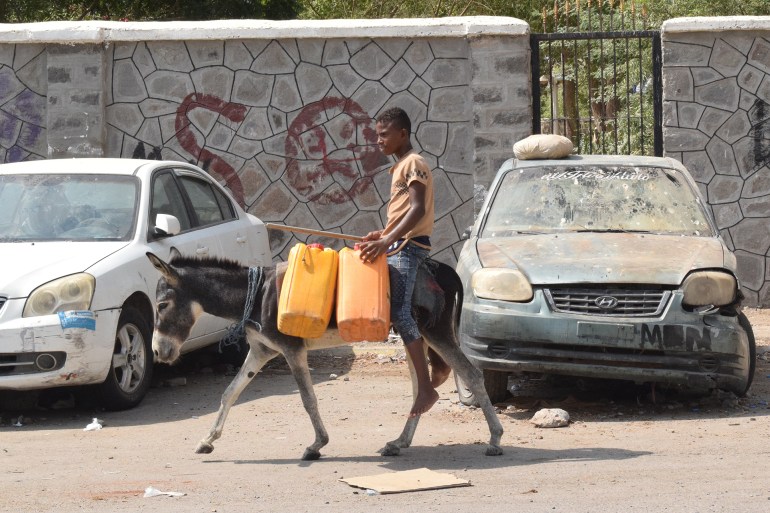Yesterday, Sunday, the security authorities in the temporary Yemeni capital, Aden (south), carried out a campaign to collect donkeys from the city’s streets.
The donkey trade in Aden has flourished remarkably recently, which, before the start of the war in Yemen, was forbidden to see in the city streets, as it disappeared from them for many years.
Local residents said that they saw Aden security vehicles carrying donkeys on board and chasing some of them in some neighborhoods of the cities of Crater and Mualla in the governorate.
Residents added that some families have had to use donkeys and use them to transport water, especially in mountainous places that are no longer connected to the water supply.
They explained that it was not usual or accustomed to see donkeys in Aden, which was known for its urbanism and cleanliness over the past years, before it had its own market in the city.
Donkeys are brought from rural areas to Aden and sold at high prices, after the increasing demand for them, especially by residents of the highland neighborhoods.
Aden is witnessing a complete deterioration in basic services, especially in the supply of electricity and water, the spread of waste and the overflow of sewage.
It was not uncommon to see "donkeys" in Aden, which was known for its civilization and cleanliness during the past years (Anatolia)
On April 26, the UAE-backed Southern Transitional Council declared an autonomous administration in Aden, before announcing its abandonment at the end of last July, under the announcement of a mechanism to accelerate the implementation of the Riyadh Agreement.
The agreement includes the Southern Transitional Council giving up the Autonomous Administration and forming a government of equal competencies between the south and the north.
For the sixth year, Yemen is witnessing fierce fighting between government forces that have been supported by a Saudi-led coalition since March 2015, and the Iranian-backed Houthi group, which has controlled Yemeni governorates, including the capital, Sanaa, since 2014.
The 6-year-old war has put millions of Yemenis on the brink of starvation, and 80% of the population has become dependent on humanitarian aid to survive, in one of the worst humanitarian crises in the world.

